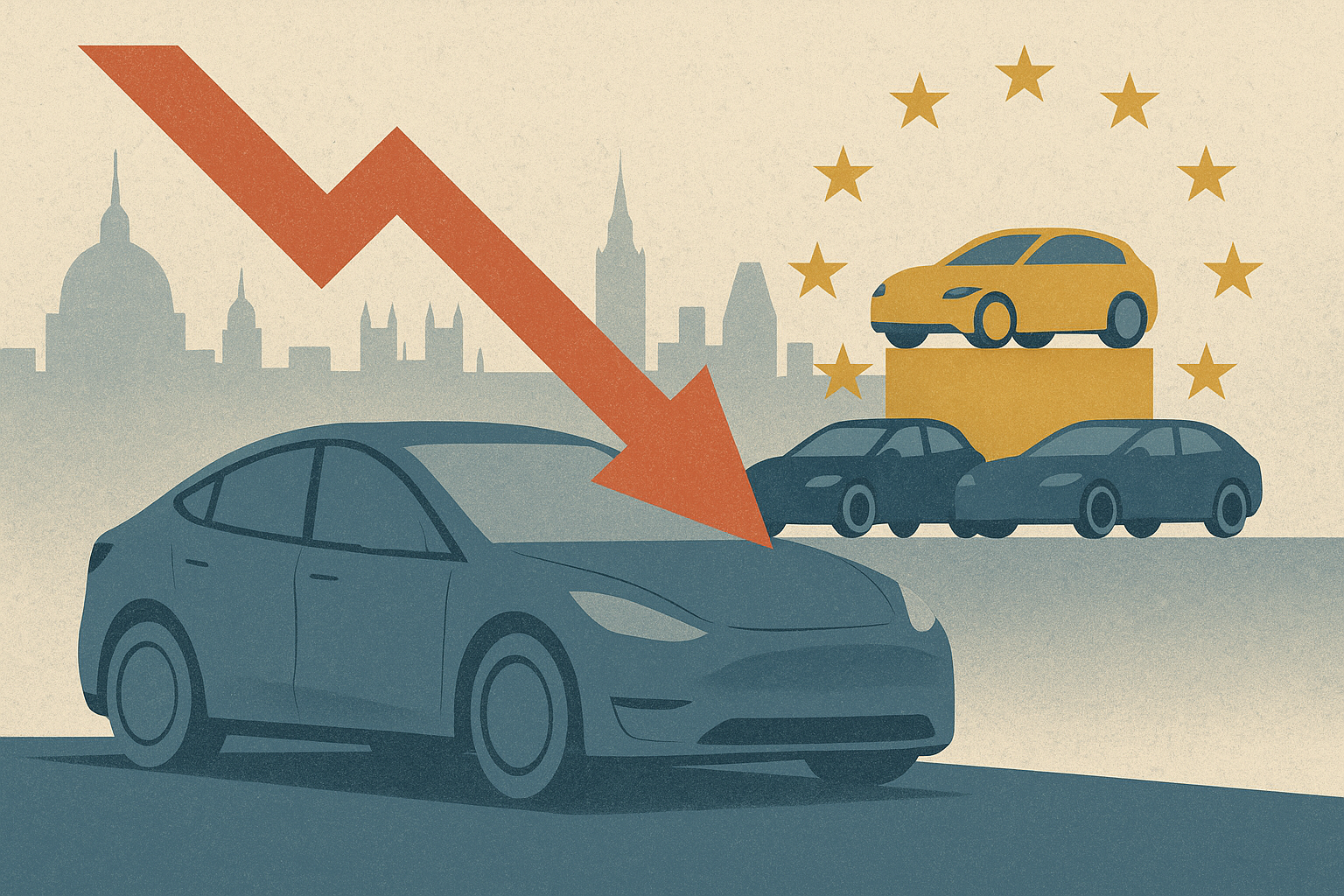Tesla’s sales in Europe have declined for the fifth consecutive month in May, despite the growing demand for electric vehicles. The electric carmaker sold 8,729 vehicles across the European Union last month, a significant drop of 40.5% from the 14,682 cars sold in the same period last year, according to figures from the European Automobile Manufacturers Association. This decline reduced the company’s EU market share from 1.6% to 0.9%.
Tesla has been relying on the updated Model Y to regain its footing in Europe, but consumers are increasingly opting for more affordable Chinese electric cars. Additionally, the political views of Elon Musk, Tesla’s chief executive, continue to negatively impact consumer sentiment.
While battery-electric vehicle registrations in the EU rose by 25% year on year to 142,776, and plug-in hybrid sales surged by 46.9% to 87,301 units, Tesla’s numbers faltered. Germany remained the largest adopter of battery-electric vehicles in Europe, with 43,060 registered, marking a 44.9% increase from the previous year. However, France saw a decline, with registrations falling to 19,414 from 23,892.
As consumers lean towards more economical options, China’s SAIC Motor recorded 18,716 sales in May, up from 13,562 last year, boosting its market share to 2%. In the UK, Tesla sold 2,016 units last month, while another Chinese competitor, BYD, outperformed it for the second consecutive month, selling 3,025 units, according to separate figures from the Society of Motor Manufacturers and Traders.
Despite selling 4.27 million cars last year, BYD has reportedly been adjusting its strategy due to rising inventory levels in its domestic market. It has scaled back production and delayed expansion plans, cancelling night shifts and reducing output by at least a third at some of its factories, as reported by Reuters.
The data also indicates that hybrid-electric cars remained the most popular choice for buyers in the EU over the first five months of the year, capturing 35.1% of the market share, while petrol vehicles dropped to 28.6% from 35.6% last year.




